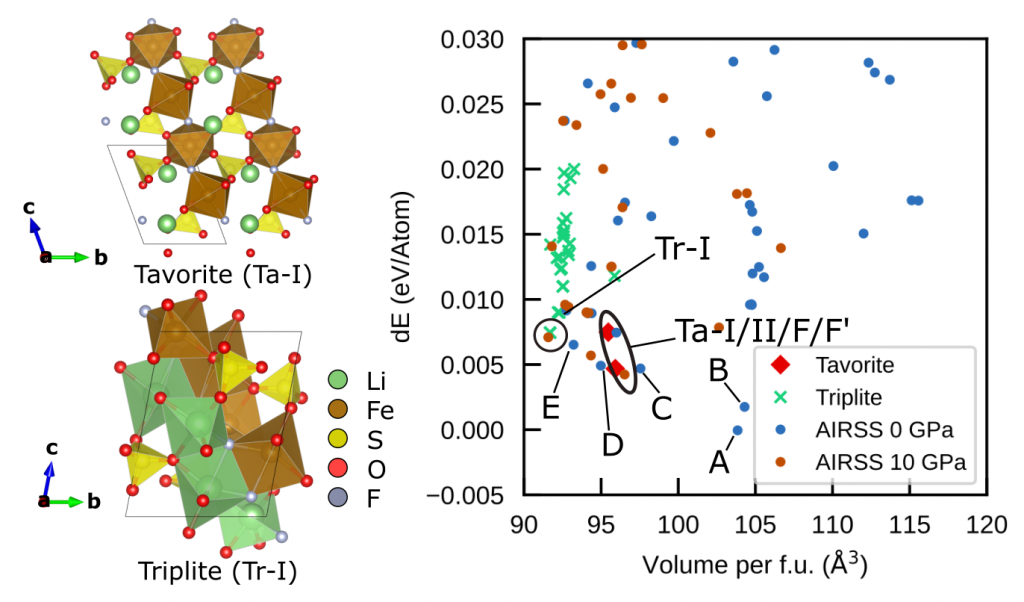Accelerating cathode material discovery through ab initio random searching feature
Paper: “Accelerating cathode material discovery through ab initio random structure searching”
Publication: APL Materials, 20th December 2021
Authors: Dr Bonan Zhu, Dr Ziheng Lu, Prof David O. Scanlon, Prof Chris J. Pickard

Dr Bonan Zhu, UCL
High-performance, low-cost cathode materials are urgently needed for scaling up Li-ion batteries for various applications. Discovering new cathode materials is a slow process to-date, which can be accelerated by leveraging ahead-of-lab computational prediction and characterisation of potential candidates.
In this article, FutureCat researchers Dr. Bonan Zhu, Dr. Ziheng Lu, Prof. Chris J. Pickard, along with Prof. David O. Scanlon demonstrate that ab initio random structure searching (AIRSS) is highly effective for predicting low energy structures of complex polyanionic cathodes materials. When applied to LiFePO₄ the ambient and high-pressure ground state structure can be found easily. Applying the same approach to a more complex system, LiFeSO₄F , allows a new low energy sillimanite-structured polymorph to be located. It has similar, if not lower, energy that the experimentally reported tavorite and triplite phases, and combines both good Li mobility and the high voltage of the latter two.
Moving to compositions that have not been explored experimentally yet, they find a new cathode material Li₂Fe(C₂O₄)F₂ featuring 1D lithium conduction channels. When compared to existing material Li₂Fe(C₂O₄)₂, it has higher specific capacity and better structural stability during cycling.



